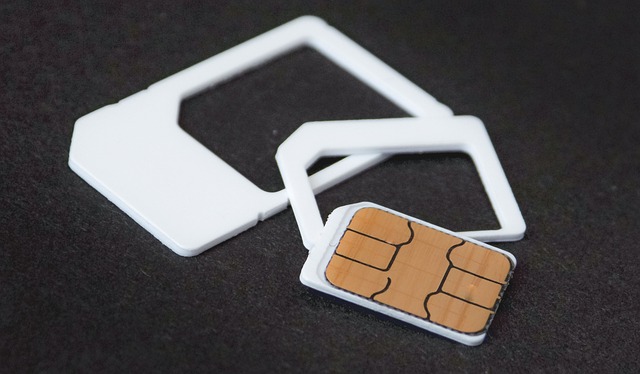Diabetes Program: A Practical Guide to Better Health and Blood Sugar Control
Managing diabetes effectively requires a comprehensive approach that combines medical guidance, lifestyle modifications, and consistent self-care practices. A structured diabetes program can provide the framework needed to maintain healthy blood sugar levels, reduce complications, and improve overall quality of life. Whether you're newly diagnosed or seeking better control, understanding the components of an effective diabetes management strategy is essential for long-term health success.

This article is for informational purposes only and should not be considered medical advice. Please consult a qualified healthcare professional for personalized guidance and treatment.
Living with diabetes presents daily challenges, but with the right tools and knowledge, individuals can successfully manage their condition and lead fulfilling lives. A comprehensive diabetes program encompasses medical supervision, nutritional planning, physical activity, monitoring, and education. These programs are designed to empower individuals with the skills and confidence needed to make informed decisions about their health. The goal is not just blood sugar control, but also preventing complications and maintaining independence.
What Makes an Effective Diabetes Management Program?
A successful diabetes management program addresses multiple aspects of care simultaneously. It typically includes regular medical check-ups, personalized meal planning, exercise recommendations, medication management when necessary, and ongoing education about the condition. Healthcare teams often consist of endocrinologists, certified diabetes educators, dietitians, and sometimes mental health professionals. The program should be tailored to individual needs, considering factors like diabetes type, current health status, lifestyle, and personal goals. Effective programs emphasize patient engagement and provide resources for daily decision-making.
How Can You Control Blood Sugar Levels Daily?
Blood sugar control requires consistent attention to several key factors. Monitoring glucose levels at recommended intervals helps identify patterns and triggers. Carbohydrate counting and portion control play crucial roles in preventing spikes. Timing of meals matters, as does the balance of macronutrients consumed. Regular physical activity helps cells use insulin more efficiently and can lower blood sugar naturally. Stress management techniques are equally important, as stress hormones can raise glucose levels. Adequate sleep supports metabolic function and hormone regulation. Staying hydrated and limiting alcohol consumption also contribute to stable blood sugar readings throughout the day.
What Lifestyle Changes Help Type 2 Diabetes Management?
Type 2 diabetes responds particularly well to lifestyle modifications. Weight management through gradual, sustainable changes often improves insulin sensitivity significantly. Incorporating at least 150 minutes of moderate aerobic activity weekly, such as brisk walking, swimming, or cycling, can make measurable differences in glucose control. Resistance training twice weekly helps build muscle mass, which increases the body’s ability to use glucose. Dietary changes focus on whole grains, lean proteins, healthy fats, and abundant vegetables while limiting processed foods, sugary beverages, and refined carbohydrates. Smoking cessation is critical, as smoking increases diabetes complications. Establishing consistent sleep schedules and managing stress through mindfulness, yoga, or other relaxation techniques support overall metabolic health.
How Do You Create a Diabetes Self-Care Plan?
A diabetes self-care plan serves as your personal roadmap for daily management. Begin by working with your healthcare team to establish specific, measurable goals for blood sugar ranges, weight, physical activity, and nutrition. Document your medication schedule, including dosages and timing. Create a monitoring routine that specifies when to check blood sugar and what actions to take based on results. Plan meals and snacks in advance, keeping healthy options readily available. Schedule regular medical appointments and screenings for potential complications. Include strategies for managing sick days, as illness affects blood sugar levels. Identify your support network and emergency contacts. Review and update your plan regularly as your needs change, and always carry identification indicating you have diabetes.
Are Online Diabetes Prevention Programs Effective?
Online diabetes prevention programs have gained recognition for their accessibility and effectiveness. These programs typically offer structured curriculum delivered through digital platforms, including video lessons, interactive tools, and virtual coaching. Research shows that well-designed online programs can help participants achieve meaningful weight loss and reduce diabetes risk. They provide flexibility for people with busy schedules or limited access to in-person services. Features often include food logging apps, activity trackers, peer support forums, and personalized feedback. However, effectiveness depends on participant engagement and program quality. The Centers for Disease Control and Prevention recognizes certain online programs that meet specific standards. While convenient, these programs work best when combined with regular medical supervision and may not suit everyone’s learning style or technology comfort level.
| Program Type | Provider Examples | Key Features | Estimated Cost Range |
|---|---|---|---|
| In-Person Diabetes Education | Hospital-based programs, Community health centers | Face-to-face coaching, Group classes, Hands-on training | $50-$200 per session |
| Online Prevention Programs | CDC-recognized platforms, Health insurance portals | 24/7 access, Virtual coaching, Digital tracking tools | $100-$500 per year |
| Comprehensive Management Apps | Subscription-based services, Integrated health platforms | Meal planning, Glucose tracking, Medication reminders | $10-$30 per month |
| Medical Nutrition Therapy | Registered dietitians, Diabetes care centers | Personalized meal plans, Carb counting education, Follow-up support | $100-$250 per session |
Prices, rates, or cost estimates mentioned in this article are based on the latest available information but may change over time. Independent research is advised before making financial decisions.
Building Long-Term Success with Diabetes Management
Sustainable diabetes management requires patience, persistence, and realistic expectations. Progress may be gradual, and setbacks are normal parts of the journey. Celebrating small victories helps maintain motivation, whether it’s achieving target blood sugar readings for a week or incorporating new healthy habits. Regular communication with your healthcare team ensures your management plan evolves with your needs. Staying informed about new research and treatment options empowers better decision-making. Remember that diabetes management is not about perfection but about making consistent, informed choices that support your health goals. With the right program, support system, and commitment to self-care, individuals with diabetes can minimize complications and maintain an active, fulfilling lifestyle for years to come.




